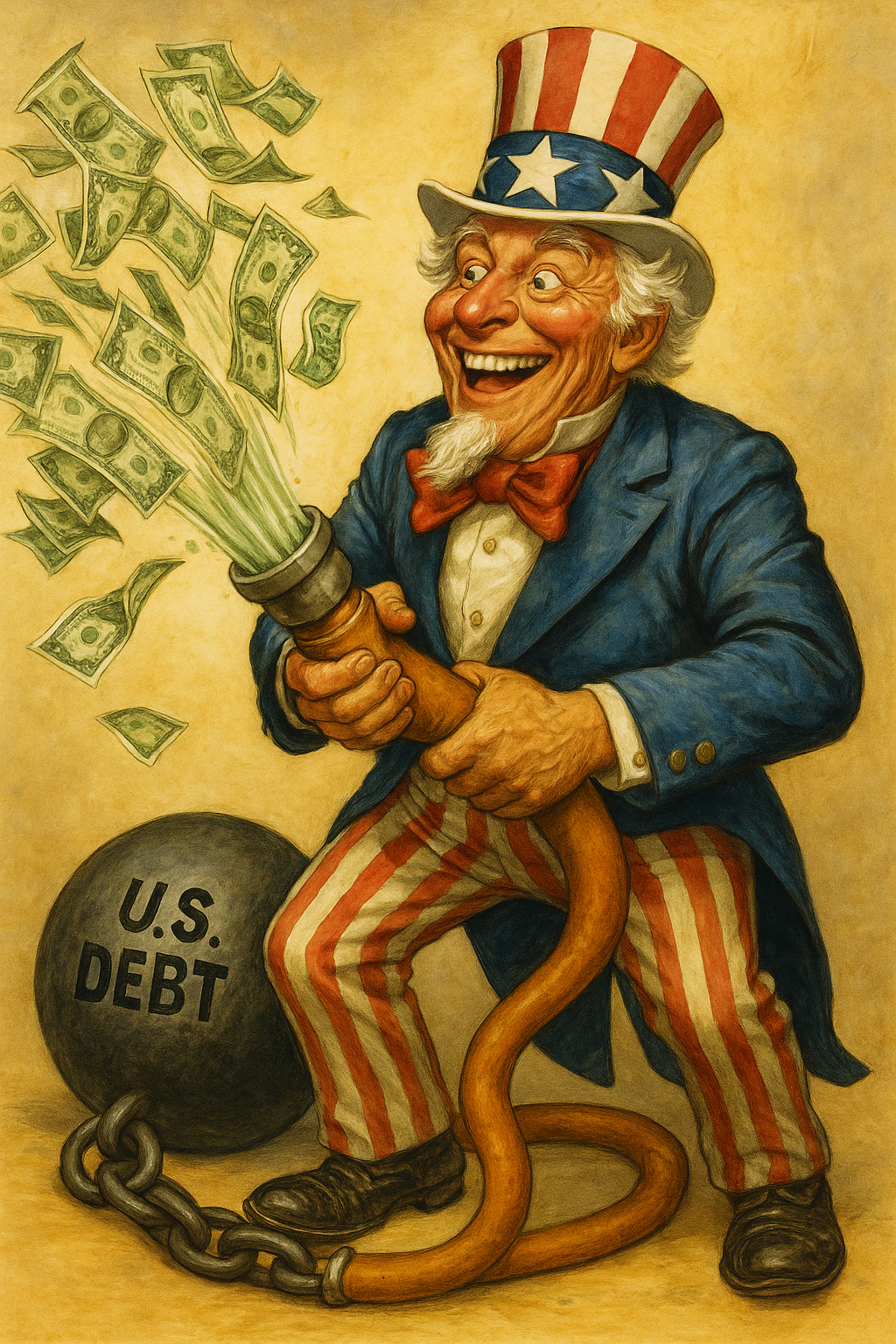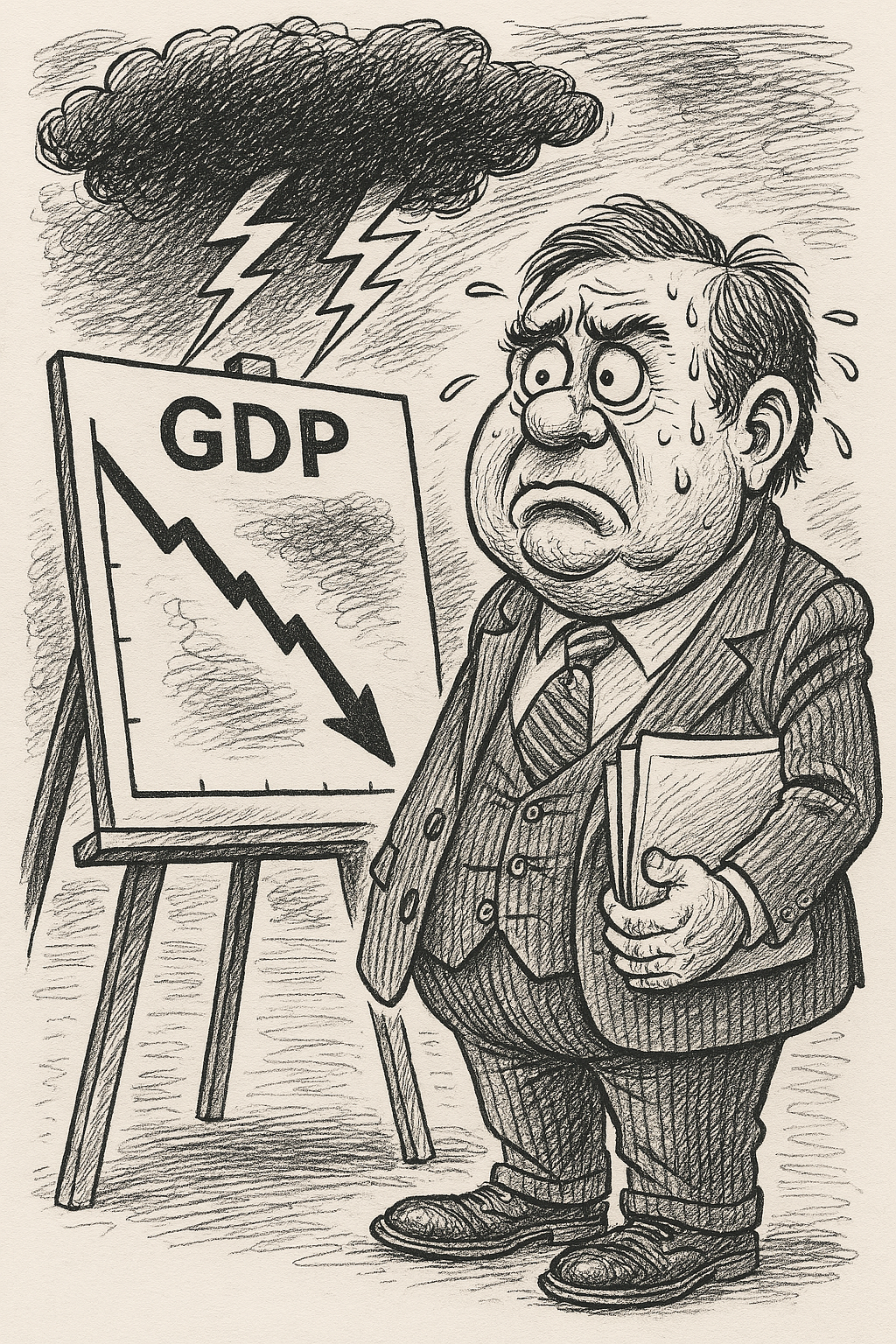
By now, you’ve probably read that the United States—once famed for putting people on the Moon and inventing Pop-Tarts—is doing a rather enthusiastic job of canceling science. Not accidentally, like when you spill coffee on a lab notebook, but actively, gleefully, and with the sort of techbro gusto usually reserved for buying up a failing social media platform, firing 80% of the workforce, declaring it ‘fixed’ after renaming it after a letter, and then setting it on fire with a flamethrower labeled “free speech.”
Recent headlines paint a picture best described as “full-blown academic divorce proceedings.”
- The New York Times warns: “The World Is Wooing U.S. Researchers Shunned by Trump”
- The Economist ominously notes: “Trump’s Attack on Science Grows Fiercer and More Indiscriminate”
- And Foreign Affairs, never one for understatement, declares: “America’s Coming Brain Drain”
This may all sound a bit dramatic—unless you’ve spent the last few weeks watching the U.S. government enthusiastically shovel scientific research into a giant dumpster labeled “TOO WOKE.”
Enter DOGE: Not the Coin, Not the Meme, But Somehow Even Less Real
According to Nature, that little-known, fringe publication, the U.S. National Institutes of Health (NIH) has just slashed billions in research funding. Why? Because it’s 2025, and we’ve replaced peer-reviewed evidence with Elon Musk’s gut instinct and a government agency named after a meme coin.
Yes, America has officially entered the Monty Python Presents: Ministry of Fiscal Silly Walks era of governance, complete with a new bureau: the Department of Government Efficiency, or DOGE.
Who Needs Weather Forecasts Anyway?
It’s not just health science that’s being cut by the Great Federal Chainsaw. The National Science Foundation (NSF) is staring down a 50% funding cut, while the National Oceanic and Atmospheric Administration (NOAA)—those folks who track hurricanes, rising sea levels, and the general collapse of habitable ecosystems—is facing $1.3 billion in proposed cuts.
When Elites Attack… Other Elites
Back in the 1960s, the U.S. produced “the best and the brightest”—an ambitious, if sometimes tragically misapplied, brain trust that gave us the Moon landing, the Peace Corps, and, yes, Vietnam. By contrast, 2025 seems determined to offer up the loudest and the angriest, and it’s difficult to see where all this shouting is going, other than into the nearest TikTok comment section or Trump rally.
It is a peculiar sort of populist uprising: many Americans, tired of elites, chose a billionaire with gold-plated toilet handles to lead them. And to their credit, they stuck it to the elites. The problem is that they now appear to be stuck with worse ones—only this time, their idea of expertise is “I did my own research,” which generally means they watched a man in aviator sunglasses misread a graph on Youtube.
The truth is, Donald Trump never needed a degree from Harvard. He already had something far more valuable: a father with a real estate empire and no desire to see it taxed. In this brave new world, education is increasingly seen as suspicious, unnecessary, and, most damningly, feminine—a tragic fate for anything in American public life.
Consider this: in 1995, the percentage of new college grads was fairly balanced between men and women. But by 2024, Pew found that nearly half (47%) of women aged 25 to 34 had bachelor’s degrees, compared to just 37% of men. This has created an odd cultural bottleneck where women still want to “marry up,” but men are increasingly unwilling to marry someone who might ask them to read an article.
High-earning men are snapped up. High-earning women, on the other hand, are encouraged to either lean in or lean out, but definitely not to lean on a man who doesn’t want to be reminded he never finished The Great Gatsby.
The larger problem, of course, is that education—while not a perfect predictor of income or decency—does generally help societies function. It produces engineers who build bridges that don’t fall down, doctors who don’t recommend bleach, and meteorologists who know a cold front is not a leftist conspiracy. It even offers thoughtful citizens who appreciate the arts and humanities, and have studied rhetoric and critical thinking.
But in 2025, America has decided that science is just a bit too smug. The Department of Education is being eyed like a suspicious foreign entity. Funding for NIH, NOAA, and the NSF is evaporating faster than a high schooler’s interest in trigonometry. And meanwhile, countries like Germany, South Korea, and even Canada are quietly backing up the truck to scoop up every biologist, coder, and climatologist with a valid passport.
We are, quite literally, exporting our brains. Which is a generous diplomatic gesture, really—if you happen to be China.
And while all this is happening, Trumpublicanism has fully embraced the pseudosciences: anti-vaccine conspiracies, anti-mask rage, and the belief that climate change is a left-wing plot designed to take away your hamburgers. Germ theory is now “suspicious,” and wind turbines are apparently part of a globalist earpiece-control program or something.
It is all, in the most technical scientific terms, deeply bonkers.
For now, America seems content to treat science as the enemy of the people, especially if it insists on telling us things we don’t want to hear—like “the planet is on fire,” or “no, bleach still isn’t medicine.”
As the former president once so memorably put it:
“I love the poorly educated.”
And judging by recent policy, he’s making sure there are more of them every day.




